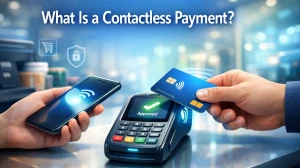
- Home »
- Credit Card »
- How to Avoid Interest on Credit Card? When Should I Pay My Credit Card Bill to Avoid Interest?
How to Avoid Interest on Credit Card? When Should I Pay My Credit Card Bill to Avoid Interest?
To avoid credit card interest, consistently pay your full balance monthly and strategically manage purchases within the grace period, leveraging options like introductory 0% APR offers and debt consolidation for financial efficiency.
by Kowsalya
Published Aug 04, 2023 | Updated Dec 12, 2023 | 📖 6 min read
How to Avoid Interest on Credit Card?
Avoiding interest on credit cards is crucial to saving money and managing your finances effectively. Here are steps you can take to avoid or minimize credit card interest:
Pay your credit card bill in full every month
- By paying off your entire balance each month, you eliminate the need to pay interest on carried-over balances.
Monitor your credit card activity regularly
- Check your credit card transactions frequently to stay aware of your spending and ensure it aligns with your budget.
Consolidate debt with a balance transfer
- Transfer high-interest credit card balances to a card with a 0% APR introductory period to save on interest. Be mindful of any transfer fees and the post-promotional interest rate.
Be strategic about major purchases
- If you plan a significant purchase, consider a credit card with a 0% APR on new purchases or explore deferred interest financing. However, be cautious about potential fees or interest at the end of promotional periods.
Opt into a buy now, pay later plan
- Some merchants offer installment plans with no interest or fees if paid on time. Understand the terms and potential costs before choosing this option.
Use a debt repayment method
- Employ strategies like the debt avalanche, focusing on paying off higher-interest debts first, to efficiently reduce overall debt.
Make multiple credit card payments per month
- Paying more frequently than monthly can reduce your average daily balance, lowering the interest accrued.
Tap into savings to pay down debt
- If financially feasible, use savings to pay off credit card debt, effectively earning a return equal to the interest rate on the debt.
Consider a personal loan
- Explore personal loans with lower interest rates to consolidate and pay off high-interest credit card debt.
Monitor your credit score
- A higher credit score may qualify you for better terms on balance transfer cards or personal loans, potentially reducing overall interest costs.
Create an emergency fund
- Build an emergency fund to cover unexpected expenses, reducing reliance on credit cards and the associated interest.
Review and understand credit card terms
- Be aware of your credit card's terms, including interest rates, fees, and grace periods, to make informed financial decisions.
When Should I Pay My Credit Card Bill to Avoid Interest?
To avoid interest charges on your credit card, it's advisable to pay the full balance before the due date. The 15/3 rule provides a strategic approach, recommending that you make a partial payment 15 days before the due date and settle the remaining balance three days before.
This tactic ensures that a significant portion is paid well in advance, reducing the average daily balance and subsequently lowering the interest accrued. By adhering to this timeline, you maximize your chances of avoiding interest charges and staying on top of your credit card payments.
MarketsHost warmly invites you to an immersive experience, where we unveil the intricacies of Credit Cards, enabling you to make informed financial decisions with confidence.
Can I Avoid Paying Interest on Credit Card?
Yes, you can avoid paying interest on a credit card. The key is to manage your credit responsibly and adopt proactive strategies. The first and most effective method is to pay your credit card bill in full and on time every month. By doing so, you prevent carrying over a balance and accruing interest. Additionally, taking advantage of your credit card's grace period, which typically offers at least 21 days with no interest charges, allows you to make timely payments.
For those facing existing debt, consider options such as balance transfers to a card with a 0% APR introductory period or negotiating with your card issuer for a lower interest rate. By staying vigilant about your spending, making strategic payments, and exploring available financial tools, you can successfully sidestep credit card interest.
How to Reduce Your Credit Card Interest?
Navigating the complex landscape of credit card interest can be challenging, especially with rising rates. Discover practical strategies to reduce your credit card interest and alleviate financial stress in these two lines.
Prioritize Full Payments
Pay your credit card bill in full and on time each month to avoid carrying a balance and incurring interest charges.
Utilize Grace Periods
Take advantage of the grace period provided by credit cards, typically at least 21 days, during which no interest is charged. Plan purchases strategically around this period.
Introductory 0% APR Offers
Explore credit cards offering introductory 0% APR periods, usually ranging from 12 to 21 months. This allows interest-free monthly payments during the introductory period.
Balance Transfer
Consider transferring high-interest balances to a new credit card with a 0% APR on balance transfers. Be mindful of transfer fees, typically ranging from 3% to 5%.
Smart Purchase Planning
Plan major purchases based on your budget and credit card statement closing date to maximize the grace period and minimize interest charges.
Multiple Payments
If paying the full balance is challenging, make multiple monthly payments to gradually reduce the outstanding balance.
Debt Consolidation
Explore debt consolidation loans or balance transfer credit cards to consolidate high-interest debt. Although there may be associated fees, they are often lower than accumulating credit card interest.
Negotiate Interest Rates
Contact your credit card issuer and negotiate for a lower interest rate, especially if you have a strong payment history. Explain your situation and emphasize your commitment to responsible financial management.
Debt Payoff Strategies
Adopt effective debt payoff strategies such as the debt avalanche, snowball, or blizzard methods. Choose the one that aligns with your financial situation and commit to reducing your credit card balances.
Regular Financial Check-ins
Regularly assess your financial situation and adjust your repayment strategies as needed. Stay informed about credit card terms and conditions to make informed decisions about managing interest charges effectively.
What is Credit Card Interest?
Credit card interest, expressed as an annual percentage rate (APR) subject to change based on benchmarks, such as the prime rate, is incurred when cardholders carry a balance month to month. The daily rate is calculated by dividing the APR by 365, with different rates for purchases and cash advances. It's vital to pay the full balance monthly to prevent accruing interest and manage average credit card interest rates, averting the risk of escalating debt.
How to Avoid Interest on Credit Card - FAQs
1. Can I avoid paying interest on my credit card?
Yes, by paying your credit card bill in full before the grace period ends, you can avoid interest charges.
2. How can I make the most of my grace period?
Pay your monthly statement in full and on time, and time your credit card purchases within the billing cycle to maximize your interest-free borrowing.
3. What is a debt consolidation loan or balance transfer credit card?
They allow you to consolidate high-interest credit card debt and transfer it to a card with a 0% interest promotion, helping you pay off the debt without accruing interest.
4. How can I avoid late payment fees on my credit card?
Set up autopay for at least the minimum payment or opt for a credit card with no late fees.
5. What is a foreign transaction fee, and how can I avoid it?
It's a fee charged when making purchases outside the U.S. To avoid it, consider credit cards with no foreign transaction fees.




